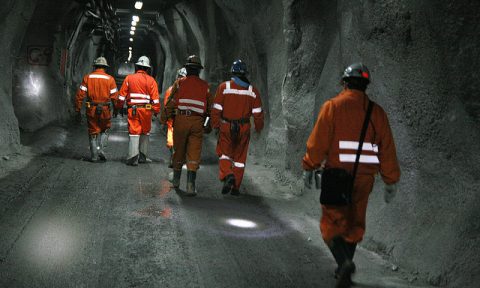Large mining advance their negotiations to avoid strikes and boost productivity
In industry emphasize the importance of good labor relations, improve production levels of companies and reduce levels of conflict
If there is a characteristic of the last three mining sector collective bargaining (Codelco, Escondida and Collahuasi) share is the joint decision of managers and workers to advance regulated process in several months.
And it is full awareness in the industry that rising costs and declining copper prices forces companies to improve their production levels and establish a good dialogue with the workers to avoid strikes, as well as to increase productivity. While senior bonds are now a trend in the industry, also operate as an incentive and enough reason to demand improvements in efficiency and productivity of workers.
“They seek to create an environment in which workers, unions and government itself are focused on to maximize production and avoid those things that at some point may generate estrangement, paralysis or deconcentration of the fundamental tasks of the company. So I think it’s a remarkable effort to advance collective bargaining, “the deputy mining minister, Francisco Orrego.
Similar view has the BHP Billiton Copper President, Peter Beaven. “By advancing the process we have an opportunity to establish an agreement between us and the workers without complexes, without strikes and no strikes, which are very important for the company.”
Escondida, BHP-controlled company, announced its regulated process in December 2012, which ended in an agreement with its workers that involved a $ 19.3 million bond and a soft loan of $ 3.7 million. Meanwhile, Codelco delivered in December a bond and credit of $ 19.8 million per employee.
For his part, the Sonami’s President, Alberto Salas, stressed the need for mining Companies to accompany these high bonds and salaries with increased productivity in the mining industry.
“I hope that both the company and workers reach agreements by good pay, but make a backup of improving worker productivity in order to have a long-run equilibrium that allows to have sustainability,” says Salas.
Sonami also add that the anticipation of negotiations and subsequent agreements also reflect “good environment in which labor relations are in the productive sector and shows a frank-sighted.”
For his part, Juan Carlos Guajardo, Cesco Executive Director, argues that it is appropriate that such high bonds are “linked to company objectives, for example, improvements in productivity, safety, and alignment with corporate strategies.”
Source: El Mercurio












